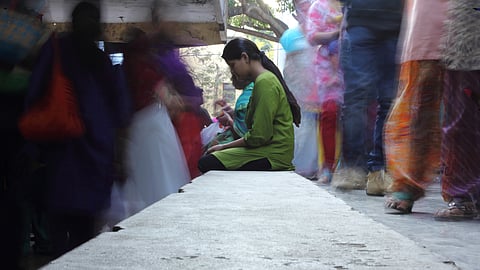
- Mental health mattersMental health matters
- Mental IllnessMental Illness
- Life stagesLife stages
- Caregiving
- Workplace Mental Health
- Legal Matters
- Subscribe

What is domestic violence?
Domestic violence refers to a pattern of abusive behavior displayed by a person living in a domestic setup where they physically and mentally harm (or threaten to harm) a person within the household. In most cases it is done to exercise power and control over the other person. Violence can occur in a cyclical pattern with three distinct phases — the build-up, explosion, and honeymoon phase. It has long term physical and psychological repercussions.
Women can access recourse under The Protection of Women from Domestic Violence Act, 2005.
What does domestic violence look like?
It is categorized into four types — physical, verbal and emotional, economic, and sexual.
Physical: Behavior that causes bodily pain and danger to life, such as (but not restricted to) slapping, beating, strangulation, and use of weapons.
Verbal and emotional: Behavior aimed with the intent of degrading and destroying the woman’s self-esteem. These include (but are not restricted to) insults, name-calling, and threats of violence.
Economic: Denying access to money, and other financial resources that an individual is entitled to.
Sexual: Behavior that is sexual in nature and that degrades, humiliates, violates, and causes injury to the individual.
What are the psychological effects of domestic violence?
Domestic violence can cause distress to a person on a daily basis and affects their routine activities. A commonly observed aftermath is the survivor’s destroyed sense of self, including low self-esteem and self-worth. Other effects include sleep disturbance, loneliness, feelings of helplessness, hypervigilance, difficulty concentrating and making decisions.
Can domestic violence impact a person’s mental health?
Exposure to domestic violence can lead to acute and chronic mental health disorders. These include common mental illnesses like depression and anxiety. Women who experience domestic violence are twice as likely to be diagnosed with depression in comparison to those who don’t. Other commonly diagnosed illnesses as a result of experiencing domestic violence are - substance-related disorders, obsessive-compulsive disorder, and eating disorders.
What happens to a pregnant woman when she experiences domestic violence?
Domestic violence during pregnancy can cause maternal and neonatal health problems. These include low birth weight in infants, pregnancy loss, and possible triggering of premature labor. Exposure to psychological violence leads to decreased quality of life, affecting the woman’s physical and mental health, as well as social functioning.
We are a not-for-profit organization that relies on donations to deliver knowledge solutions in mental health. We urge you to donate to White Swan Foundation. Your donation, however small, will enable us to further enhance the richness of our portal and serve many more people. Please click here to support us.
